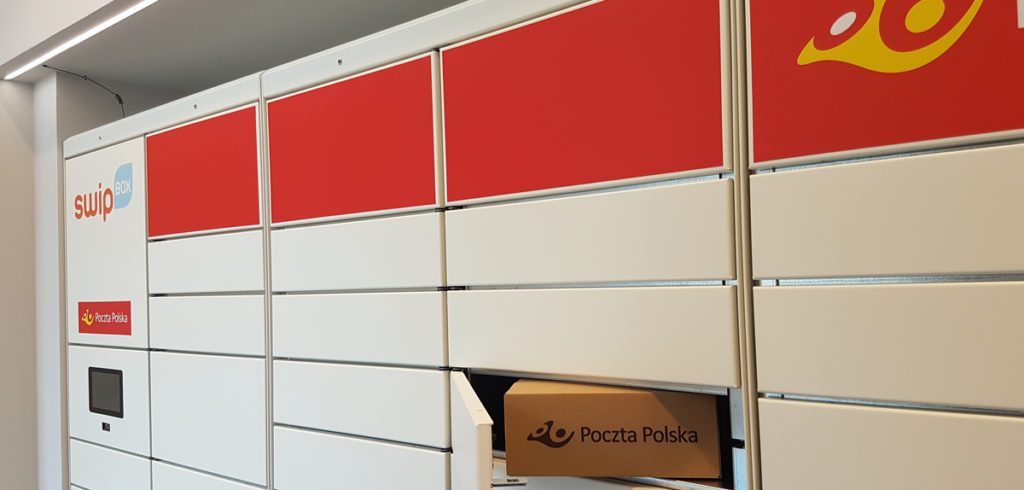Poczta Polska (Polish Post) is embracing parcel lockers and PUDO delivery to improve its share of the parcels market. Marek Różycki, Last Mile Experts, analyses the post’s 2020-2024 strategic plan
Poczta Polska (Polish Post) recently presented a new strategy for the period 2020-2024. With mail business declining by 9% per year, and the value of the CEP market growing by some 14% annually, the Polish postal operator is in a similar boat to most other European posts.
Revenues from this segment are projected to amount to zł2.1bn (US$530m) in 2024 but for this to happen, Poczta Polska must increase the profitability of parcel and courier services and network capacity to handle the growing volume of e-commerce parcels.
It seems that Poczta Polska plans major investments in modern logistics and IT solutions, and has zł1.9bn (US$442m) earmarked for this purpose.
Currently, courier, express and parcel (CEP) only constitutes some 18% of revenues, but by 2024 it is planned to grow to 24%.
The postal operator also plans to further develop its PUDO network. Currently, Poczta Polska, together with PKN Orlen (state oil company), Żabka (leading convenience store network) and Ruch kiosks (newspaper kiosks), has some 12,000 access points. By the end of the year, the network is planned to grow by another 3,000 points.
The number of parcel lockers (APMs) will also increase, albeit from a small base of only 200. Poczta claims that there will be 500 at the end of the year, and 4,000 by 2024. The machines will be set up at Biedronka (leading discount store chain) stores and at post offices in 24/7 working zones. The company is also talking to other retail networks where APMs will be installed. The project is run jointly with SwipBox.
At present, some 20% of parcels at Poczta Polska are delivered via PUDO, and at peak this rises to almost one third. The post claims that to cover all of Poland would require 25,000 access points. While we believe that the more the better, our view is that the 12,000 it has today would be enough, if they were in the right locations and had suitable opening hours and capacity.
Poczta also plans to invest in customer experience, with access points where pick-up will be guaranteed to take no longer than five minutes; it will be interesting to see how this will work but, if successful, this will be a significant improvement on current waiting times – at least at post offices.
Postal outlets will also offer ‘non-postal’ retail sales with a view to generating more revenue from parcel customers.
“Poczta Polska’s new business strategy shows its commitment to provide customers with the most convenient solutions in the e-commerce area. Parcel lockers give more choice and flexibility to customers and we are delighted that SwipBox can be part of this exciting project,” Michał Czechowski, SwipBox’s managing director for Poland, told us.
E-commerce is booming in Poland and InPost, Poczta Polska’s historic rival, seems to be taking a large share of the cake due to its strength in lockers and PUDOs. It is InPost’s out-of-home network, powered by almost 6,000 lockers and some 3,000 PUDOs, which gives it a competitive advantage with consignees – and therefore most customer-centric e-commerce players.
It is now almost certain that Amazon will enter the Polish market in 2020 with the large Chinese players – especially Alibaba – following not long after. Once their parcels hit the market, capacity will be in demand, so Poczta Polska is right to be investing heavily.
“Poczta Polska’s strategy is largely based upon the development of e-commerce-related business which is in line with global trends. Investment in out-of-home (PUDOs and lockers) is the right approach as the use of this channel is growing fast in Poland,” says Prof. Arkadiusz Kawa, director, Łukasiewicz – Institute of Logistics and Warehousing, and Last Mile Experts PRO partner.
The Polish market is one of the largest in Europe and with strong e-commerce-generated growth and two large potential entrants, it has to be one of the most attractive last-mile opportunities in Central and Eastern Europe.
Partly by luck (the fallout from the DPD and Siodemka merger) and partly via a coherent last-mile strategy, supported by lockers, InPost has taken the high ground and now it’s time for the incumbent postal operator to fight back. Let’s see how they fare but as usual in these situations, it looks like the winner will be the customer.

Marek Różycki is managing partner at Last Mile Experts, specializing in CEP and e-commerce last-mile advisory.


